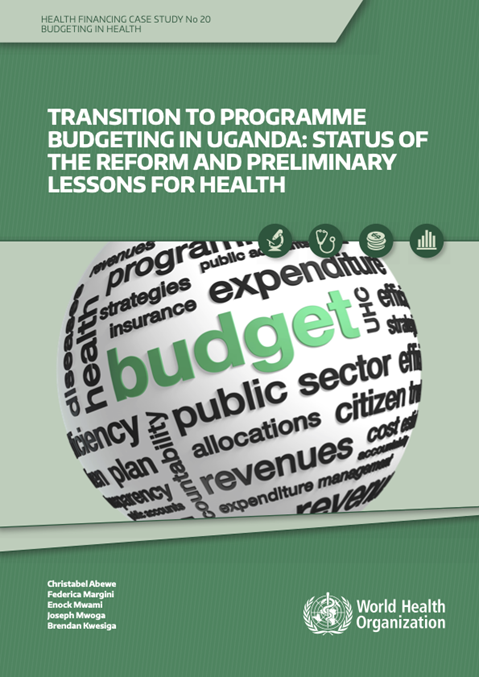Transition to programme budgeting in Uganda: status of the reform and preliminary lessons for health

Overview
Many countries have initiated transitions to programme-based budgeting (PBB) to better align budgets to public policy priorities and to enhance accountability and transparency. Since the early 2000s, the Government of Uganda has undertaken major budgetary reforms to optimise budget planning, transparency and accountability, which most recently involved the transition to PBB in Fiscal Year 2017/18. This reform, which borrows heavily from the previously existing budget structure, is aimed at strengthening the link between government strategic objectives, budget allocations and service delivery outputs.
The transition to PBB in the health sector, however, has not been without challenges, some of which are intrinsic to the complex health financing landscape of Uganda, while others pertain to the roll out and operationalization of the reform. The purpose of this study is therefore to assess the status of PBB implementation in the health sector in Uganda and discusses how implementation can be improved for greater impact. The report describes the transition from output-oriented budgeting to PBB, it analyses the current budget structure, the key achievements of the reform in the health sector and provides insights on the institutionalisation of PBB in Uganda.
